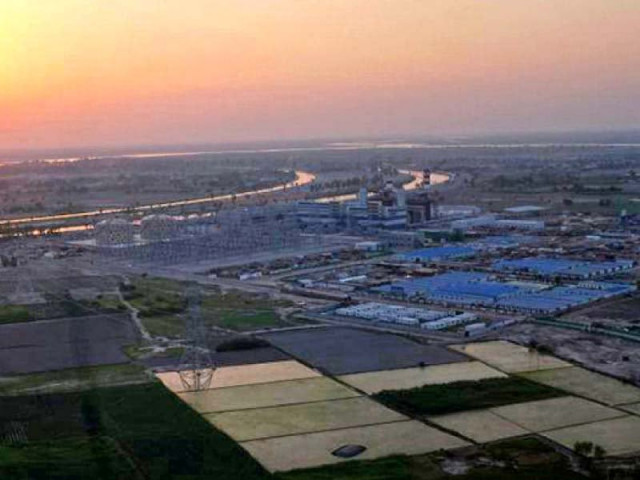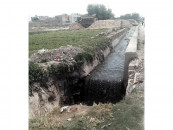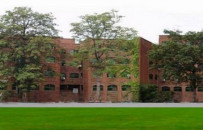Punjab seeks tariff for LNG power project
Wants to secure early financing to develop project on a fast track

The company has worked out a levelised tariff of Rs7.0947 per unit on re-gasified LNG for 30 years and Rs12.78 per unit in case the plant is run on high-speed diesel in the absence of LNG. PHOTO: REUTERS
Despite expectations of surplus electricity next year, the provincial government has asked the power regulator to award sales tariff to the project, which will be built on a fast track so that local financial institutions can be convinced to provide financing.
The provincial government is the sole sponsor of the project being constructed at Jhang by its wholly owned company - Punjab Thermal Power (Private) Limited, according to the National Electric Power Regulatory Authority (Nepra).
Amid low foreign exchange reserves, Punjab gets go-ahead for imported LNG power plant
The government will inject equity equivalent to 25% of the total cost and the remaining 75% will be met through borrowing from local financial institutions.
It would soon release the first instalment of Rs10 billion for construction of the project. Besides, it would be a major beneficiary as well as it is entitled to a guaranteed return of 16% on equity injection.
The Punjab government took special permission for building the project from the Cabinet Committee on Energy in June 2017 as the central government had banned new projects on imported fuels to save foreign exchange keeping in view availability of surplus power in the near future.
Nepra reported that Punjab Thermal Power (Private) Limited was targeting to arrange full financing for the project by the end of current calendar year. “Financial close is targeted for December 2017.”
The project is to start commercial production in 30 months or by January-February 2020.
Lead arrangers and the petitioner (government of Punjab) are currently negotiating terms and conditions for the financing facility.
“Finalisation of the financing terms is subject to determination of a viable tariff by Nepra,” the project owner said in an application seeking the award of tariff.
Punjab Thermal Power (Private) Limited has worked out a levelised tariff of Rs7.0947 per unit on re-gasified LNG for 30 years and Rs12.78 per unit if the plant is run on high-speed diesel in the absence of LNG. The company has asked Nepra to approve the proposed tariffs.
Pakistan shelves $2b LNG project
The project sponsor is also exploring the possibility of availing supplier credit for equipment and plant through credit agencies. If it succeeds, the expected additional financing cost will be adjusted accordingly. Project costs also include spur gas pipeline cost of 92 km from the off-take point at Kabirwala to the power plant site near Haveli Bahadur Shah/Trimmu Barrage, Jhang over an area of 170 acres.
The proposed net production capacity after auxiliary consumption is 1,242.7MW on re-gasified LNG and 1,081.8MW on diesel.
Punjab has established a Special Protection Unit (SPU) for providing security to the foreign nationals, especially the Chinese, working on different development projects in Pakistan.
Although the project is not part of the China-Pakistan Economic Corridor (CPEC), the level of security being provided to the Chinese and other foreign workers matches that in CPEC projects.
SPU not only provides security to the foreign nationals at the work site, but also at their residences, offices and during their movement.
SPU’s cost for the project is estimated at $8.257 million in line with the previous LNG power projects.
Published in The Express Tribune, October 6th, 2017.
Like Business on Facebook, follow @TribuneBiz on Twitter to stay informed and join in the conversation.



















COMMENTS
Comments are moderated and generally will be posted if they are on-topic and not abusive.
For more information, please see our Comments FAQ